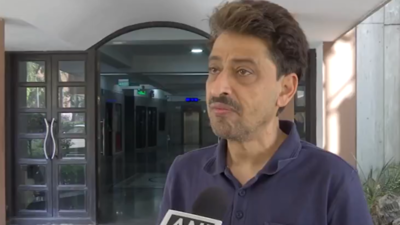New Delhi – Congress MP Imran Masood has strongly criticized Syed Naseruddin Chishty, Chairman of the All India Sufi Sajjadanashin Council, for endorsing the Waqf Amendment Bill proposed by the BJP-led government, reported the Times of India.
Speaking in New Delhi, Masood, who is a member of the Joint Parliamentary Committee (JPC) on the Waqf Bill, accused Chishty of acting as a mediator for the ruling party. “Yeh dalaali band kare BJP ki,” he declared, condemning Chishty’s support for the bill.
Chishty, on his part, defended the proposed amendments, urging the Muslim community not to fall for emotional appeals against the bill. “The government had already indicated its intention to reform the Waqf Act. The JPC has patiently heard all viewpoints and submitted its report. I believe changes to the existing law are necessary, and there is no reason to fear them. Misinformation is being spread to provoke unnecessary emotions,” he stated.
The Waqf Amendment Bill, officially named the Unified Waqf Management, Empowerment, Efficiency, and Development (UMEED) Bill, aims to introduce key reforms such as digitization, stricter audits, enhanced transparency, and legal mechanisms to reclaim illegally occupied waqf properties.
Masood, however, strongly opposed the bill, terming it unconstitutional. He also accused the government of suppressing opposition voices in Parliament. “Rahul Gandhi is not allowed to speak in the House, and even I was given only 55 seconds to speak during the entire Budget Session,” he lamented.
Highlighting the alleged lack of democratic debate, Masood added, “Where is the discussion? The Leader of Opposition is silenced, mics are turned off, and letters to the Speaker are ignored. The government is bulldozing constitutional protections of our rights.”
Congress leaders Jairam Ramesh and Rajeev Shukla echoed Masood’s concerns, accusing the government of stifling opposition voices. Shukla also pointed out that even BJP MPs were unaware of the reason why Rahul Gandhi was repeatedly prevented from speaking in Parliament.
Gandhi himself expressed frustration over the repeated interruptions. “I am never allowed to speak. What are they so afraid of?” he questioned.
As the debate over the Waqf Amendment Bill intensifies, it remains a contentious issue within the Muslim community and the political landscape, with opposition leaders vowing to resist what they see as an encroachment on their constitutional rights.




